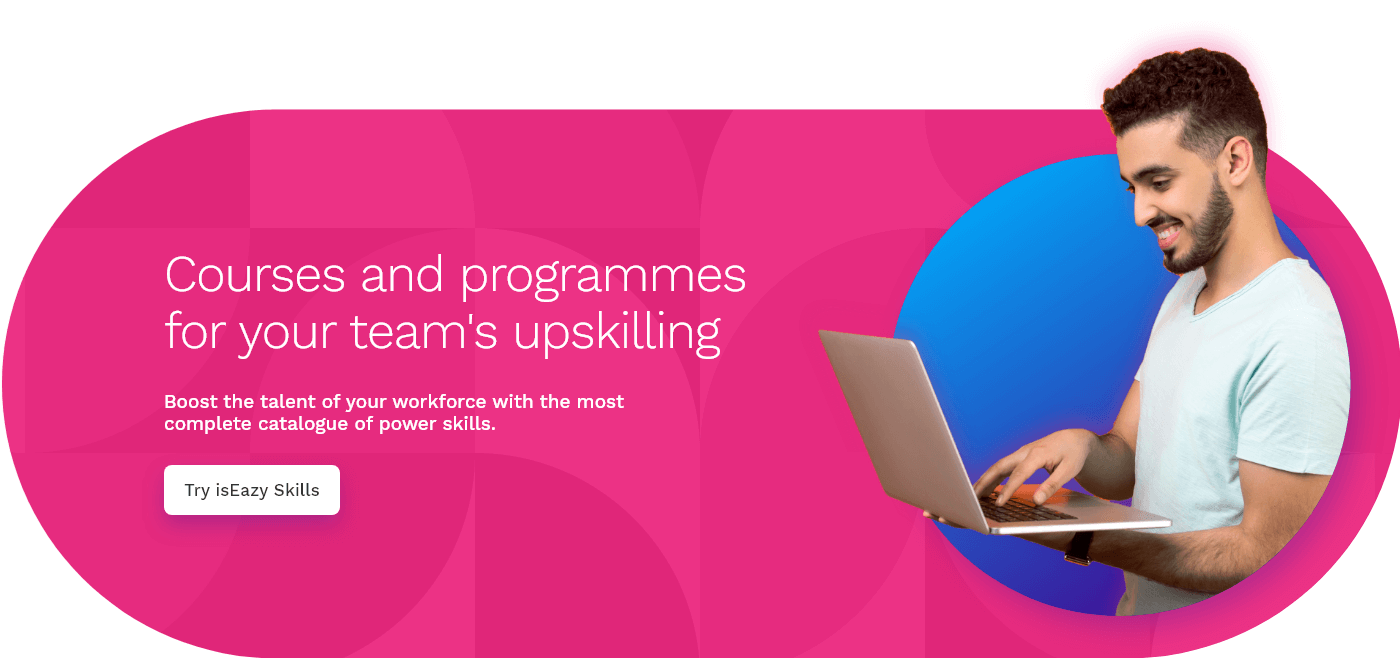Table of contents
ToggleIn the HR world it is essential to have a clear understanding of the terms skills, competencies and capabilities. These concepts are often used interchangeably, but acknowledging their differences can be the difference between finding or not finding the perfect candidate for each job.
That is why in this article we clarify all your doubts related to these three terms, and explore the importance of distinguishing between them to help your HR professionals build truly successful teams.
What are skills and competencies?
Skills and competencies are all those characteristics that allow us to understand if a candidate is suitable to carry out the required tasks of a role. Although the difference between these two terms is very subtle, it is very important to recognize it in order to adequately respond to the needs of an organization before hiring a new employee.
- Skills
This term refers to a person’s ability to do something correctly and with ease. Skills can be developed through education, vocational training or work experience and can be technical, such as knowing how to handle specialized software, or transferable, such as teamwork.
- Competencies
Competencies, on the other hand, refer to the traits and characteristics of an individual, such as their values or motivations, that allow them to perform effectively in a job. Competency is made up of a combination of technical and socio-emotional skills, as well as theoretical knowledge necessary to fulfill a role.
Differences between skills, abilities and competencies
As you may have seen, skills are more focused on a person’s practical capabilities, while competency encompasses a broader set of knowledge, skills, and behaviors. However, let’s dig deeper into their differences:
Capabilities vs. competencies and skills
When a person is able to perform a task, it means that he has the competence or skill. When they are not yet capable of this, but have the potential to be, it is a capability.
Skills vs. competencies
As we said before, the distinction between these two concepts is more subtle. A person with skills is capable of performing a task. While a person who is competent not only performs it but does so considering the importance of the task and finding the most optimal way to achieve it.
Why is it important to know the difference between HR skills and competencies?
Being able to distinguish between skills and competency is very useful for HR departments, especially when selecting talent. This allows them to look for candidates who, in addition to fitting the job, have the ability or potential to learn everything that is needed to perform successfully within the company.
And what else can it help us with?
To set growth plans and boost internal mobility
This distinction can help us to favor the movement of employees between jobs as part of their professional development. In other words, a candidate with the ability to learn what it takes to fill a job is a very valuable asset for any organization.
To set realistic goals for a more effective recruitment process
By understanding the difference between skills and competency, a company can more precisely define the requirements needed for a specific job. They can also evaluate candidates more effectively and set realistic development objectives, which contribute to building solid teams capable of achieving the strategic objectives of the organization.
To determine the employability of the candidate
In other words, the potential that each person has to access a job, develop and continue growing professionally. By assessing both the technical skills and socio-emotional competency of professionals, the HR department can get a much more complete picture of a candidate’s suitability for a specific position and their ability to adapt and succeed in the work environment.
How to boost skills and competencies in your team?
Now that you know the concepts and differences between these terms, it’s time to think about how to develop competencies and skills within your organization to achieve long-term success. Not only will this allow you to increase productivity and improve performance, but at the same time reduce employee turnover, as training and continuous development are invaluable tools for talent retention.
To train your team, a customized, modern and innovative solution is required. isEazy Skills offers you a complete catalog of courses for team training, with interactive and dynamic e-learning content adapted to new digital learning trends. Ready to boost your team’s talent?













